“The wise man is one who knows what he does not know.”
- Lao-Tzu
RICHIE GALWAY knocks on the door and walks in. Before he can say a word, Dick O’Sullivan has a line.
“Richie,” he says to his racing manager, “any hard questions, be on standby!”
Galway smiles towards yours truly, sitting across from Punchestown’s GM.
“The Kerry mantra… if you can’t convince them, confuse them.”
No-one laughs louder than O’Sullivan.
It has not taken long to learn the secret of O’Sullivan’s transformative influence on the home of Irish jump racing.
He is a leader, a manager of people rather than a venue. It all sort of happened by accident, as he accumulated life experiences. It would make the most wonderful book but as he would not dare commit half of the reality to print – it would not be worthwhile.
Having dreamed of being a commentator and done the honours for the first time as a 16-year-old for the Donkey Derby during the Rose Of Tralee in the ‘50s, O’Sullivan became a vet instead.
He established a private practice but didn’t enjoy it and joined the Department of Agriculture, where he served for 14 years. He packed it in, aged 45. That was when his good friend and boss of Kerry Co-Op, Denis Brosnan came calling. It wouldn’t be the last time.
“He asked me would I go to Mexico,” recalls O’Sullivan. “I said it to my wife (Carmel) and she said ‘Are you mad? You get lonely on holidays! And you’ll get eaten alive by the mosquitos and whatever else is out there.’ In the end, I decided to go. It was supposed to be for six months and I ended up there six and a half years.
“The reason I’m telling you this is that I hadn’t a clue. But every time I would go into any job, I picked people who did know. I never tried to know everything about anything. Even here. Don’t talk to me about Grade 1 this or that – I wouldn’t know. Richie knows that inside-out. I don’t need to. What you are is the anchor.”
Brosnan identified something in O’Sullivan and gave him the freedom to grow. It was a trait that would, perhaps, become O’Sullivan’s greatest strength. To know what he doesn’t know and not feel threatened by that. To fill the gaps with people who did. To create new leaders.
It is so evident around Punchestown with the likes of Galway, PR and communications boss Shona Dreaper, and Janet Creighton, the sales and hospitality/sponsorship manager.
Former Killarney racecourse manager, Micheál Lucey is a former protégé, having learned the ropes under O’Sullivan as Punchestown’s accountant, and it was notable how one unnamed racecourse manager highlighted O’Sullivan’s influence during canvassing, as the track’s current commercial executive, Conor O’Neill secured a stunning success when elected chair of AIR last month.
“Treat people right and trust them. We have what we call management meetings… I bring everyone into a monthly meeting – it’s weekly coming up to the festival – and everyone gives a report on what they’re doing. And they talk it out.
“You’d see temporaries coming in here for two or three months and it’s like an infection. They get infected by the others. They’re up there talking about party packs, tickets they’ve sold, what they did and what they didn’t do, and you see them growing in front of you. That, for me, is how you run a business.”
He admits to feeling “a total buzz” when witnessing that growth. It is one of the absolute pleasures of his nearly 36 years of management.
****
“When you ain’t got nothing, you got nothing to lose.”
- Bob Dylan
DENIS Brosnan was chairman of Horse Racing Ireland when he called his buddy once more.
“I was retired. He said ‘What are you doing?’ I says ‘Nothing. I’m done of it now for a while.’ And I was after Mexico and Brazil. I was burned out. He says ‘I’ll ring you in two months and you’ll be climbing up the walls.’ He rang me in about six weeks and I was, kind of.
“‘How you getting on?’
“‘I’m in the way a bit’, which I was.
“‘I’ve a job for you. Dick, I want you to go into Punchestown. They’re in a small bit of trouble there. Three days a week will do you.’”
O’Sullivan laughs as he recounts the exchange. It was 2002, he was 65 and had had short stints with Tote Ireland and as acting manager at Leopardstown. Brosnan twisted his arm. “Small bit of trouble” (mar dhea!) Of course the situation was dire. There was internal strife, massive debt, the threat of liquidation, a racing surface that was not fit for purpose.

Crowds at Punchestown Racecourse
“The minute I came up, I fell for the place. I walked the track with Mrs Moore, the ex-manager, and Mary, her daughter. I remember climbing the hill – she was flying, I was off the bridle thinking ‘If I’ve to do this every day I’ll be like a greyhound.’ I could see the potential. I wasn’t sure how to get there, but I saw it.”
The guy that never makes a mistake, never does anything.”
So he put a team in place and drew up a five-year plan. At the core of everything was a set of principles that he still has written on a sheet of paper, pinned to his notice board. The staff are reminded of them many times.
1. Mission. “That means where I am now, where I want to be. In other words, what’s the ambition?”
2. Strategy. “What’s the plan to get there? And a strategy is mostly looking at what strengths have you and what weaknesses. Now leave the strengths alone and work on the weaknesses. Try and take them out, and the strengths will handle themselves.”
3. Structure. “Most guys in business that are badly run, have nothing at the top, or maybe nothing at the bottom. They don’t have a clue what’s going on. There’s no structure. They don’t know who the boss is often.”
4. Capability. “The people you have must have some capability. Now, they don’t have to be geniuses but they must have some capability.”
5. Clarity. “This is key. There’s nothing worse than guys in a business trying to do a job and they’re not clear of what is wanted of them. That’s a desperate important thing in any business.”
6. Take responsibility. “Don’t say it’s someone else’s fault. Rubbish. You will make mistakes if you’re any good. The guy that never makes a mistake, never does anything.”
The first job was to “get out of the hole”. They cut spending. Rebuilding relationships with the locals was crucial. The track was upgraded, the appointment of Seán Ryan to his first job proving inspired.
Willie Mullins’s description of the surface as the best in the world at Tuesday night’s launch of the new Hunt Stand is the ultimate imprimatur. The facilities left a lot to be desired but there was nothing they could do until the loans were paid off. Throughout the trials, they made progress, working together, in it all the way.
WAGES
“During the recession, there was a three-year period when we couldn’t afford to pay the wages. I asked the staff if they would take three months off in the summer with no wage. They did, and it couldn’t have been easy. They all had families and bills to pay. But they did it, they waited and every one of them came back.”
O’Sullivan delivers this information in an almost awed, reverential tone. But his people clearly believed in him.
“We could never go near a capital programme ‘cos we had nothing to go into it. The capital programmes came and went and we were watching them. But we put the heads down and we got on and the team started to deliver. Corporate business was built up and loyal as hell.
“A lot of the same people, year-in, year-out. It’s 17,000 now. A lot of the same sponsors – I think it’s at 43 now.”
The festival became a five-day affair, having for so long had the bizarre situation of a four-day extravaganza being followed immediately by an unloved industry fixture.
“I remember walking around the place. We’d have 18,000 or 20,000 on the Friday at that time even. This day we had maybe a 1,000 people and no-one wanted to be there. We didn’t want to be there. We were at a meeting – it was someone that came in. But they said, ‘Why don’t we do a family day?’ And I says ‘How would you do it?’
“‘The schools.’”
So they visited the schools and it is something O’Sullivan still does. They established a painting exhibition for the children and next week there will be numerous interpretations of Ruby Walsh, Davy Russell and an array of other jockeys and horses. More than 30,000 people attended Family Day last year.
DREAMING
“The business started growing. We paid off all our debts. We got our second wind. We were dreaming about what we might do for a few years. We were building monstrosities, three-tier stands and all sorts of things and then we gathered ourselves and said we’d build what we can afford. How much have we? We’ll go for six million. So we got a 40% grant, put up 60% ourselves.”
The first phase of the redevelopment involved revamping existing facilities, which had remained untouched apart from the odd lick of paint since 1998.
The bars, restaurants and cafes are unrecognisable from what existed before. They are spacious, comfortable and welcoming. Now they stand up as hospitality facilities in their own right, a place you would gladly bring a guest.
Phase two involves the construction of the spectacular new Hunt Stand, which will be road-tested for the first time on Tuesday.
Containing new bars, restaurants and private boxes for the general public, corporate clients and owners and trainers, it boasts a spectacular view of the finishing straight, and indeed, the entire track and surrounding areas.
The old uncovered stand in the general enclosure was taken out and reinserted at each end of the new development, ensuring that tradition sits comfortably with progress. It is a wonderful touch.
The whole thing cost €4m and represents a stunning delivery from such relatively little outlay. You can tell, walking around with him, that O’Sullivan is genuinely impressed.
It was something he scarcely believed could be possible, even though it was always a target. None of it would have been possible without the support of the board under chairman David Mongey, HRI and the Kildare Hunt Club, he emphasises.
“We are the home of National Hunt racing, and we were dressed like paupers. But we never lost that ambition and feeling… we have made a huge step forward and we need never again be ashamed of our facilities… Richie and Shona did a Trojan job.
“Week-in, week-out, Richie and Shona stayed with that project and kept the rest of us away from it, which was the right thing to do. You don’t want 12 or 14 of us giving opinions.
“Patsy Byrne was a great pal of mine who was a builder in England, God be good to him. He had mares with Brosnan and this farmer says to him one day ‘Would you tell me Patsy? Does Brosnan ever ask you your opinion?’
“Patsy looked at your man and he says ‘Oh, he does, often. But when he wants my opinion, he gives it to me!’ Richie was the same.”
If we didn’t race that day we were gone. The money lost, it would have sunk us.
****
“Why should age enter into anything? You’re capable of running and organising a team or you’re not.”
– Mick O’Dwyer
THERE has to be satisfaction surrounding the remarkable turnaround in Punchestown’s fortunes under his stewardship but O’Sullivan is not the complacent type.
The monsoon-like weather that threatened the very existence of the track in 2012 was a reminder of the perils of such a condition.
“I looked out the window of that office in there, and I saw a storm blowing, wind and rain, young ones walking across with their dresses blowing around their ears and they laughing!
I honestly thought we’d no chance. If we didn’t race that day we were gone. The money lost, it would have sunk us.
“You’re close to the margin in a business like this. The first thing that’s wrong with this business is about 70% of your income comes from five days. If something goes wrong with those five days (you’re in trouble). Now our aim is try and shoulder that business so that there’s other events here, concerts and things like that, that will carry some of the load.”
With prize money breaking the €3 million barrier this year, the British trainers are coming in their droves, along with attendant punters – around 20% of the attendance will be from across the water. The welcome afforded to Sprinter Sacre in 2013 proved a turning point in that regard, O’Sullivan reckons.
UNDIMMED
He will be 81 in June. Although his powers remain undimmed, and he has the Micko quote from a newspaper interview pinned on his notice board alongside his business principles (and a whole lot more), the driving from Tralee doesn’t get any easier.
“My wife died, the 19th of April 2005, a few days before the festival. I was at home and the lads said to me ‘Hey, you better go.’ I said I couldn’t go. How could I go? They said ‘For your own sake, you should go. We’ll go up with you.’ And we all came up.
“I didn’t leave the office apart from once, to meet Páidí Ó Sé and the team. It was tough and it saved me too after. It’s probably the reason I stayed so long. There’s a lot achieved and completed and maybe when we get over this one, it will be time to take stock.”
Should he choose to take a back seat, it seems obvious that the candidates to pick up the baton are just around the corner. And maybe that would be Dick O’Sullivan’s greatest legacy.
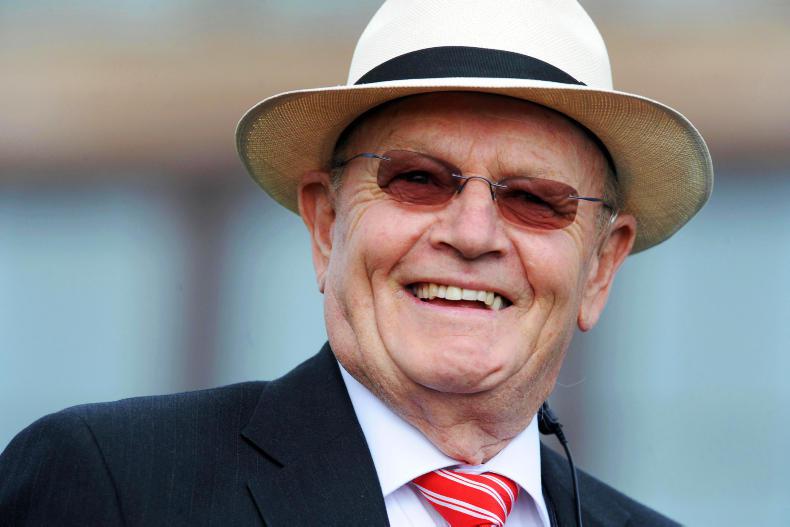

 This is a subscriber-only article
This is a subscriber-only article
 It looks like you're browsing in private mode
It looks like you're browsing in private mode




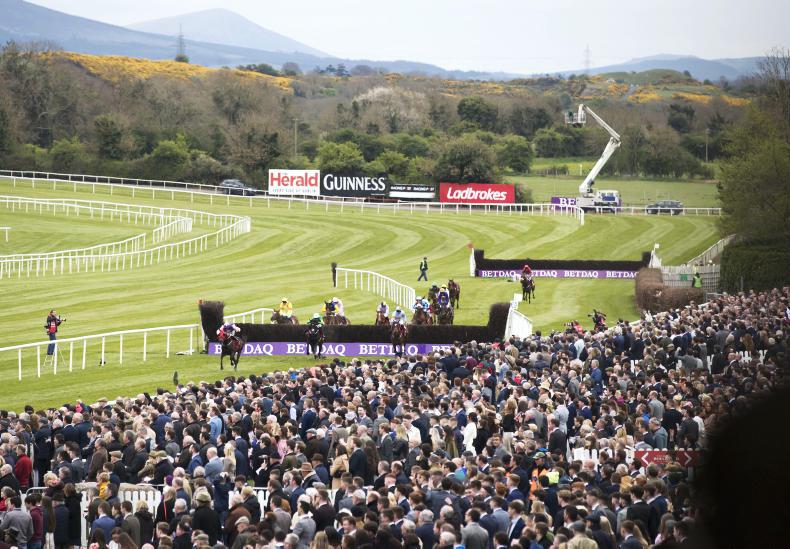

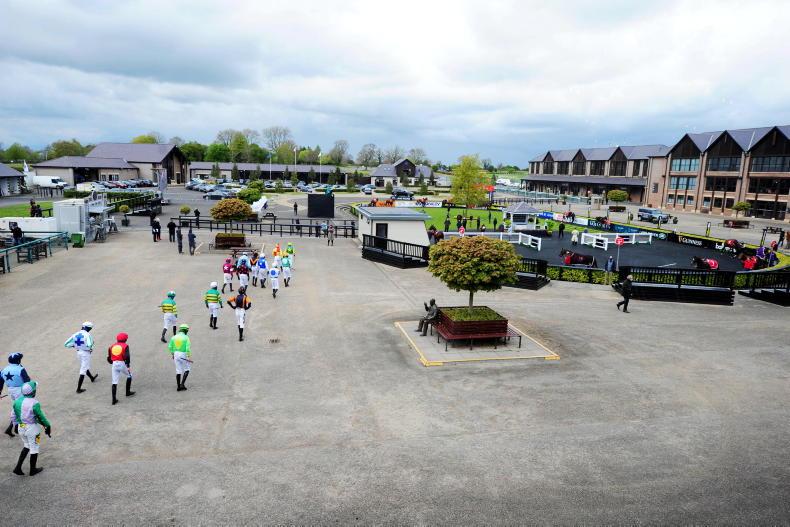

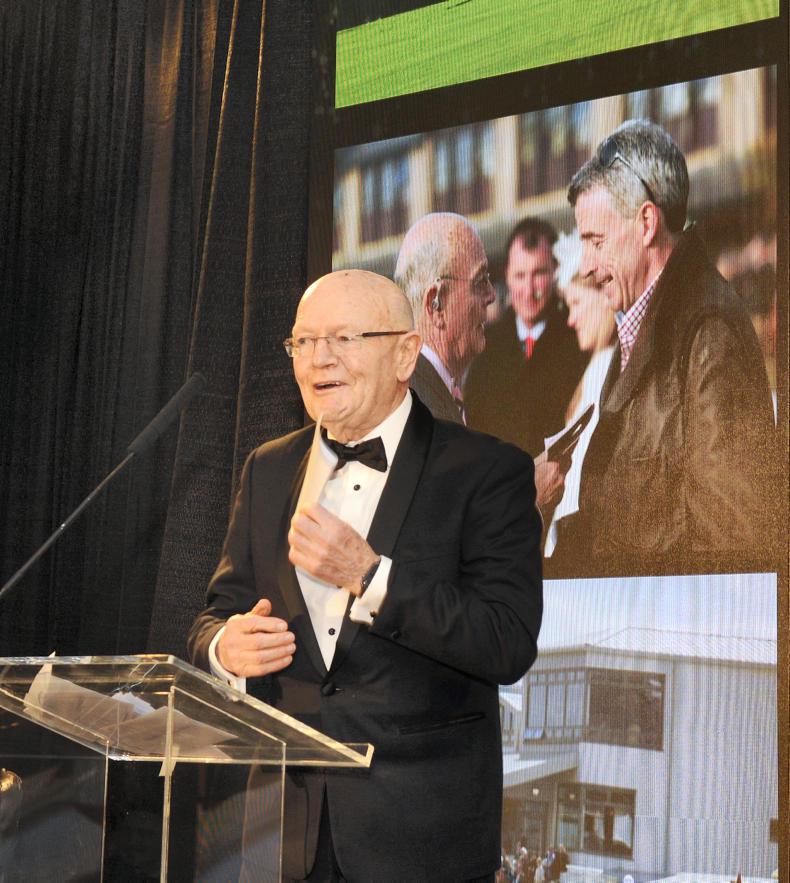
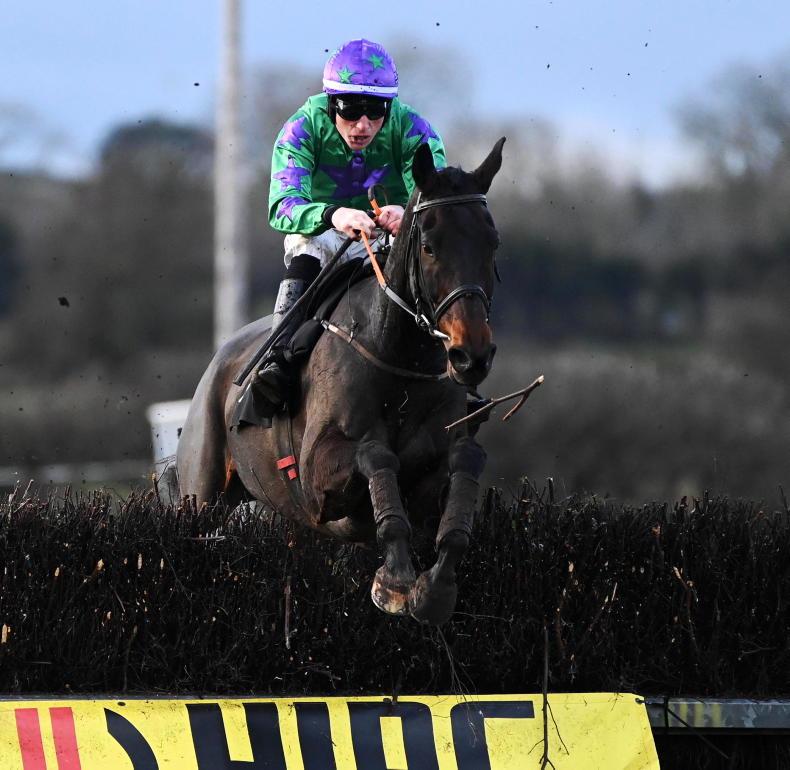
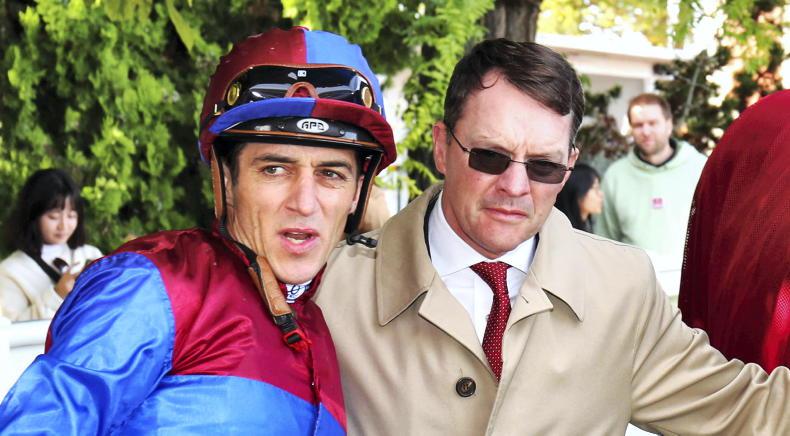
SHARING OPTIONS: